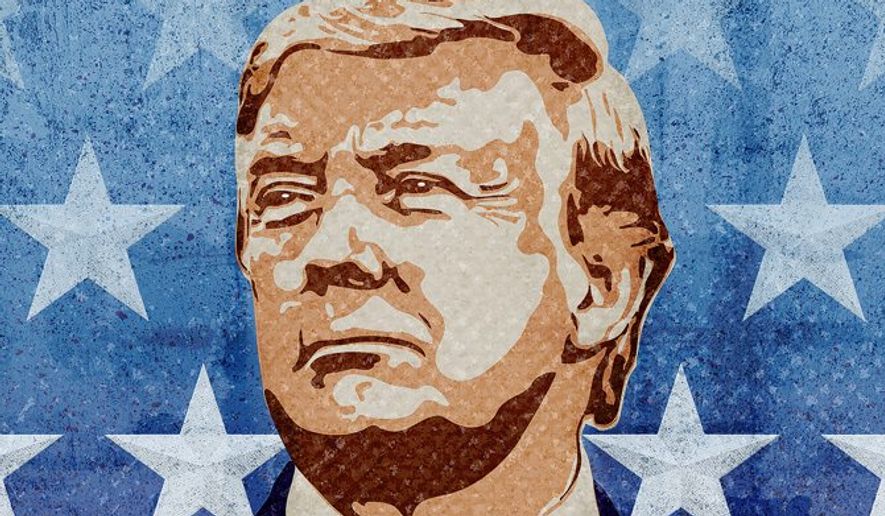OPINION:
Fresh ideas have been in short supply this campaign season. President Biden’s platform consists entirely of his not being former President Donald Trump. As an insurance policy, he expects his Justice Department officials will imprison his opponent and his opponent’s advisers before Election Day.
That’s why it was refreshing to hear Mr. Trump distinguishing himself from the current Oval Office occupant by announcing new policies. In a meeting with Republican lawmakers at the Capitol Hill Club on Thursday, Mr. Trump reportedly floated a proposal to replace some aspects of the income tax with tariffs, perhaps offsetting reductions in tax rates.
Far from being a crazy notion, this is a return to what the Founding Fathers intended. The country ran itself just fine on tariffs up until the early 20th century, when progressives — including Theodore Roosevelt — pushed ratification of the 16th Amendment, which saddled us with the current 70,000-page mess of rules and regulations enforced by the Internal Revenue Service.
Politicians had their hands on citizens’ paychecks, and the spending bender never ended. Government expenditures amounted to around 3% of gross domestic product prior to the income tax, but federal spending now exceeds 36% of GDP.
At a town hall in Arizona earlier this month, Mr. Trump explained that tariffs are about more than spending. They are a tool of diplomacy. For instance, he told Mexico’s president to station Mexican troops at the border to discourage illegal immigration into the United States — or else.
“I said if you aren’t going to give [the troops] to me, we will charge you a big, beautiful tariff — 25%, 50%, or it will go up to 100%,” Mr. Trump declared.
The tariff strategy worked to curb immigration, but that’s not to say replacing an income tax with tariffs will be easy. Customs duties raised a mere $80 billion last year, almost entirely from levies on industrial goods, which are taxed an average of 2%. Half of the goods we import aren’t taxed at all.
So, increasing the tariff to an average of 10% would raise about $400 billion per year. Sounds great, except the government Leviathan consumes far more than that. Annual corporate taxes amount to about $420 billion, payroll taxes amount to $1.6 trillion, and the personal income tax brings in $2.2 trillion.
Modest, 10% tariffs could easily replace the corporate income tax and kick-start massive economic growth, or they could give every American a 20% discount on April 15. Mr. Trump may have other plans for the size of tariffs and the allocation of funds.
Tariffs are not easy to implement because they invite retaliation from overseas competitors, and they will increase the cost of imported goods for consumers. On the other hand, that also encourages domestic production — exactly what Mr. Trump wants to see.
The difficulty in raising tariffs is what makes them an excellent tool for funding a limited government. As long as politicians are able to squeeze money out of paychecks by making the tax code more onerous, government continues to expand.
If Mr. Trump brings us closer to eliminating the IRS, or better yet, repealing the 16th Amendment, he has a winning idea.




Please read our comment policy before commenting.